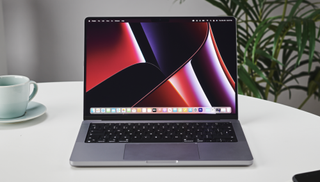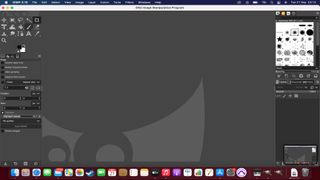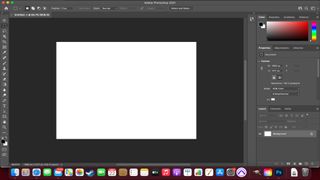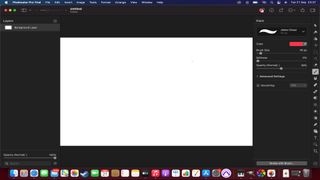Best photo-editing apps for Mac in 2022
From GIMP to Pixelmator for the Mac

Picking a good image editor for Apple's Mac computers can be a challenging task if you're new to the platform. With so many options all doing slight variations of the same thing, it's easy to feel like you might be missing something. If you want to edit photos or make entirely new images, you need a robust editor with powerful tools.
There are tons of editing apps available on macOS and, with Apple's Silicon chips already beating the Intel Macs in speed and battery performance, there's even more powerful hardware to take advantage of. If you're looking for a roundup of the very best image editors in the market, this is where you should start.

1. GIMP
Reasons to buy
Reasons to avoid
GIMP has been the go-to free photo editor for years, providing many of the features you might expect from high-end applications. Apart from having to learn some brand new names for tools you have already been using, it's pretty easy to pick up. If you have enough creativity and patience to figure it out, you can do most of the things you would expect in any image editor.
That being said, it's a free piece of software and that only goes so far. It could definitely do with some more features, for example, it could go a little more in-depth with its customization features. If you're a casual user, you will likely get all you need out of GIMP but, if you make your living from editing photos or you want some of the more professional software out there, GIMP is not your best choice.
Aside from its name, for everyday editing, there's little reason to complain about this software. It's sturdy, efficient and a solid start for anyone looking to pick up image editing.

2. Adobe Photoshop
Reasons to buy
Reasons to avoid
If you're familiar with photo editing, there's a good chance you already have a love/hate relationship with Adobe. It puts out some of the world's best creative apps but the subscription fee and constant changes leave consumers feeling like they never really own the software they pay for. In a sense, this is right. Adobe basically offers the ability to rent software, but it is an excellent product you're getting.
If you can afford to do so, it's hard to not recommend getting Photoshop, and Lightroom, due to the integration, resources, and great features. If you are struggling with its, sometimes rather steep, learning curve, you will find thousands of tutorials online due to its immense popularity.
For a professional designer, the sheer volume of users makes it hard to not follow suit and get what everyone else uses. After all, there's a reason this is the industry standard.

3. Pixelmator Pro
Reasons to buy
Reasons to avoid
in our past few weeks using it, Pixelmator Pro has shown itself to be the best all-rounder in the market. Where the Adobe suite has a multitude of applications for your different design needs, Pixelmator Pro does a little bit of everything at a very reasonable price.
The latest version of Pixelmator Pro brings better background erasing to easily get rid of unexpected objects, alongside better exporting for .svg files and for the web.
The app also comes with features tailored to macOS, such as Shortcuts support, so automation on your projects can be possible, and native support for the M1 Pro and M1 Max chips, that are currently in the MacBook Pro 14-inch and 16-inch models.
If you're someone who wants to dabble in all that image editing has to offer, this is a really solid application that costs less than the cost of a month's subscription to the full Adobe Creative Cloud.

4. Fotor Photo Editor
Reasons to buy
Reasons to avoid
Fotor is one of the most unique choices on this list. Where most editor apps aim to emulate photo-editing giants like Photoshop, Fotor carves out its own niche in the market.
Fotor is a free image editor based around using filters and quick processes. You can add text, crop images, and do all the basic things you would expect from an editing app, though without the high level of detail (and price) other editors offer. This being said, if you simply want to crop or touch up a photo, this software is easily worth your time.
As it's easy to use and very fast, if you're only working a light load, this is often worth using to avoid having to boot up your traditional photo-editing software. Fotor is a fantastic tool for those who just need something quick and effective.

5. Darktable
Reasons to buy
Reasons to avoid
With easy-to-use functions comes a lack of depth. If you want to reshape an image entirely or make something from scratch, Darktable is not a good choice. If you want a no-fuss solution to get your pictures Instagram-worthy – this is a pretty appealing package.
Darktable is a free open-source app that is great for applying touch-ups to RAW files. If you simply want to get something ready for social media or make it look a little better to send to your friends, Darktable is an excellent resource.
It's great for applying small changes in non-destructive ways and allows you to go back through the history of the file to return your original image. It seems built to enable users to mess around and try out settings until they find something that works – and it does it well.
- The best online photo editors
Get daily insight, inspiration and deals in your inbox
Get the hottest deals available in your inbox plus news, reviews, opinion, analysis and more from the TechRadar team.

James (he/they) is a freelance games journalist with over 500 pieces published at outlets including GamesRadar, NME, Prima Games, VG247, and God is a Geek.
